Newhouse School Hosts Panel Analyzing Media Coverage of Israel-Hamas War
The latest Israel-Hamas war, sparked by an attack on Oct. 7, 2023, has not only led to a significant humanitarian crisis but also posed unprecedented challenges for journalists covering the unfolding tragedy. Amidst the devastation, with Gaza’s infrastructure decimated and a rising death toll, the role of media in portraying the conflict has come under scrutiny.
In response, the Newhouse School’s broadcast and digital journalism department, in conjunction with the magazine, news and digital journalism department, organized a pivotal panel discussion, “Balanced or Biased? Assessing US Media Coverage of the Israel-Gaza War, and Why It Matters.” Held on March 21 in the Joyce Hergenhan Auditorium, the event aimed to dissect the American media’s portrayal of the war, fostering a critical dialogue on journalistic responsibility.
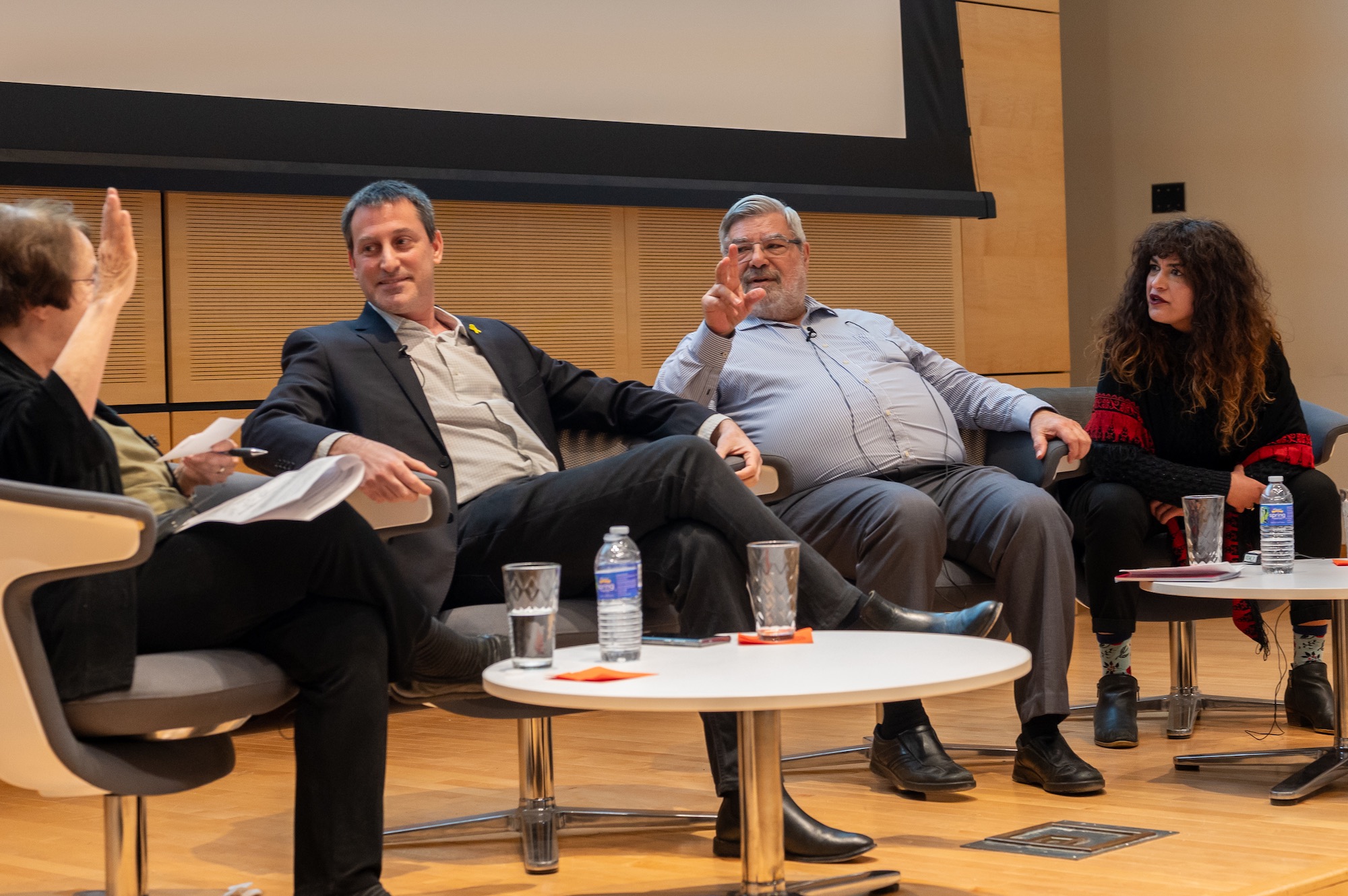
Ken Harper, a visual communications associate professor and director of the Newhouse Center for Global Engagement, emphasized the mission of the discussion.
“It’s not just about teaching student communicators, it’s about fostering a public need for nuanced and quality journalism,” said Harper, who helped organize the panel.
The Philadelphia Inquirer columnist Trudy Rubin, known for her extensive Middle East reporting, moderated the panel. The veteran journalist underscored the delicate balance between bias and objectivity in conflict reporting.
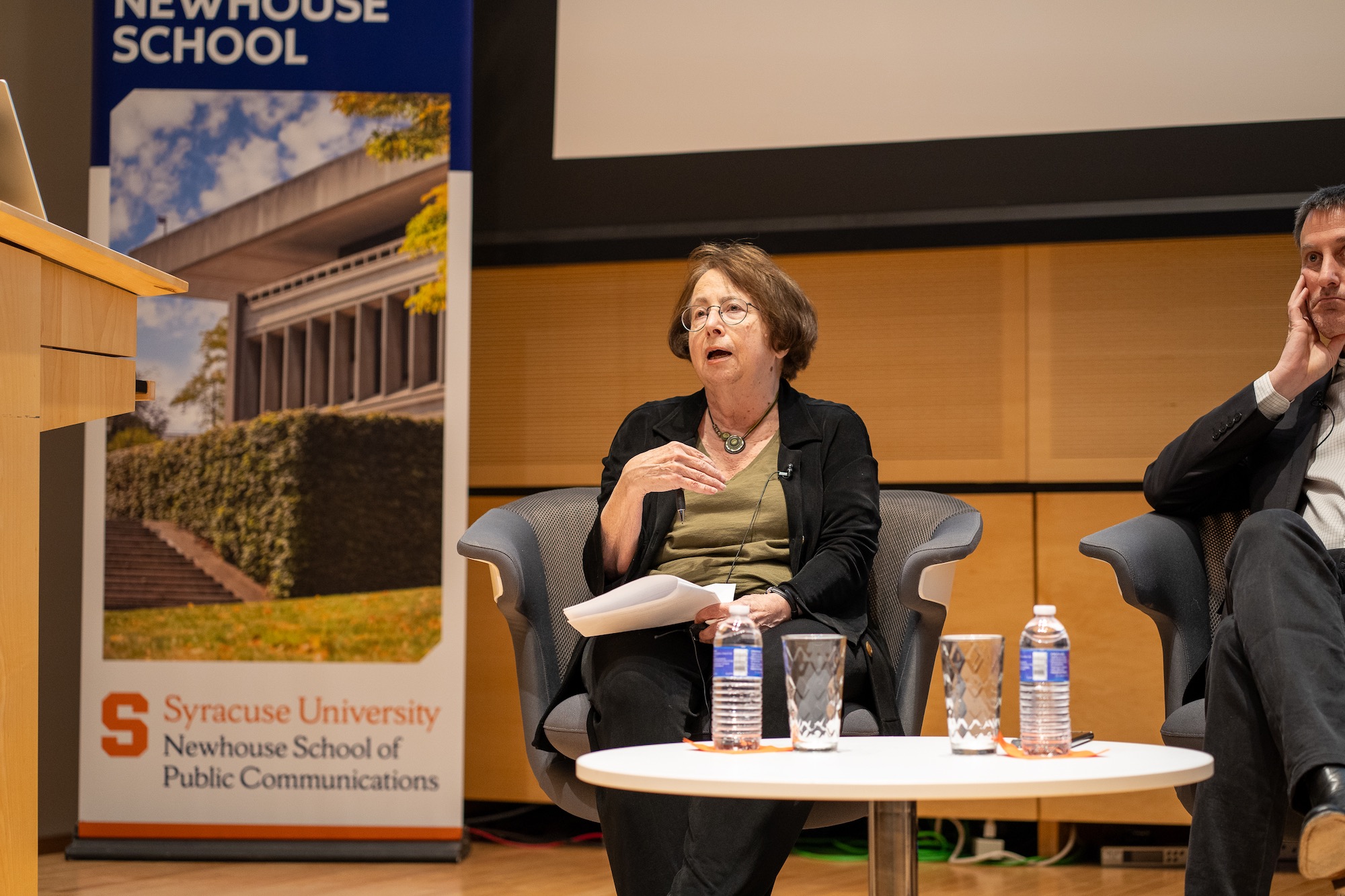
“The first principle of fairness and balance to me is being able to talk to the people and trying to talk to the people on both sides, even if you disagree with what you hear,” she said.
The panel featured voices from various perspectives, including Barak Ravid, Axios staff reporter and CNN foreign policy analyst; Rami Khouri ’70, G’98, a distinguished fellow from the American University of Beirut; and Kholood Eid, a Palestinian-American photojournalist. Each talked about the complexities and ethical dilemmas journalists face when reporting on conflicts, with Ravid pointing out the impossibility of journalists being completely unbiased.
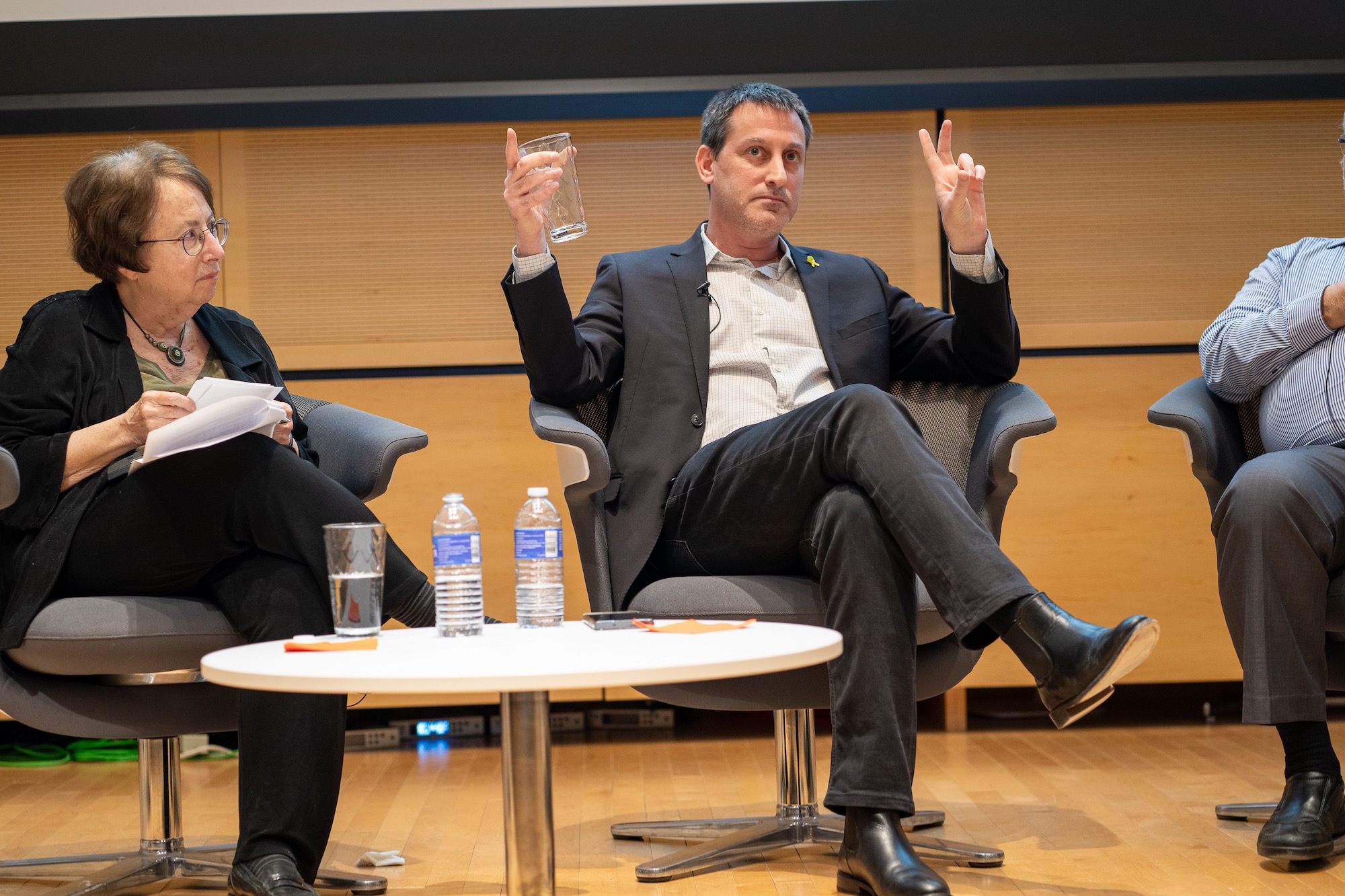
“Humans are not unbiased. Journalists need to be fair, they need to be honest, and they don’t need to be objective. They don’t need to be unbiased,” he said, while also reflecting on his transition from covering Israeli politics to reporting on the war, and highlighted the inherent challenges in maintaining objectivity.
Khouri, a Newhouse School alumnus, shared insights from his extensive career, stressed the importance of amplifying marginalized voices and advocated for journalism that listens to, acknowledges and promotes diverse narratives.
“The single most important thing that I believe defines all human beings is the need to have their voices heard, the need for people to listen to them, to ask them questions, and to receive them,” he said.
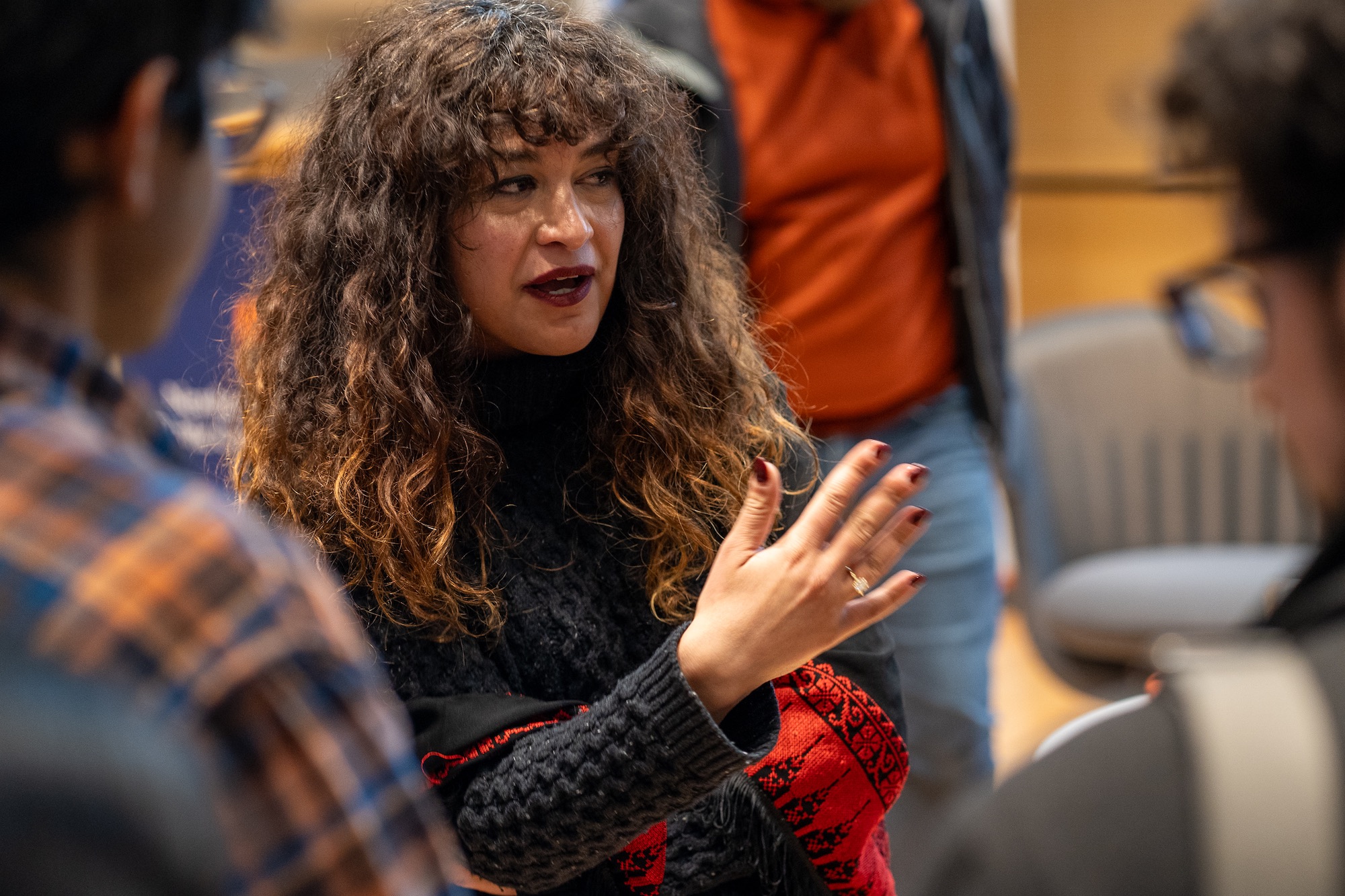
Eid spoke from personal experience and addressed the emotional toll and professional hurdles that are encountered by journalists with ties to the conflict, while also emphasizing the role of journalism in highlighting humanitarian issues.
“Journalism at its root is advocacy. We are advocating for the truth, we are advocating for accountability,” Eid said.
The wide-ranging discussion ventured into the broader implications of the conflict on the communities involved, the existential crises faced by Israeli and Palestinian individuals, and the historical context vital for understanding the nuanced dynamics at play. Panelists also fielded questions on the media’s framing of the war and improving campus reporting on the war.
Scott Jenkins, a student in Newhouse’s advanced military visual journalism program and Elisa Flynn, a broadcast and digital journalism sophomore, underscored the importance of fair and informed journalism in shaping public understanding of complex international issues.
“Working in this field, it’s important to show fairness in what we do and to hear other people out,” Jenkins said.
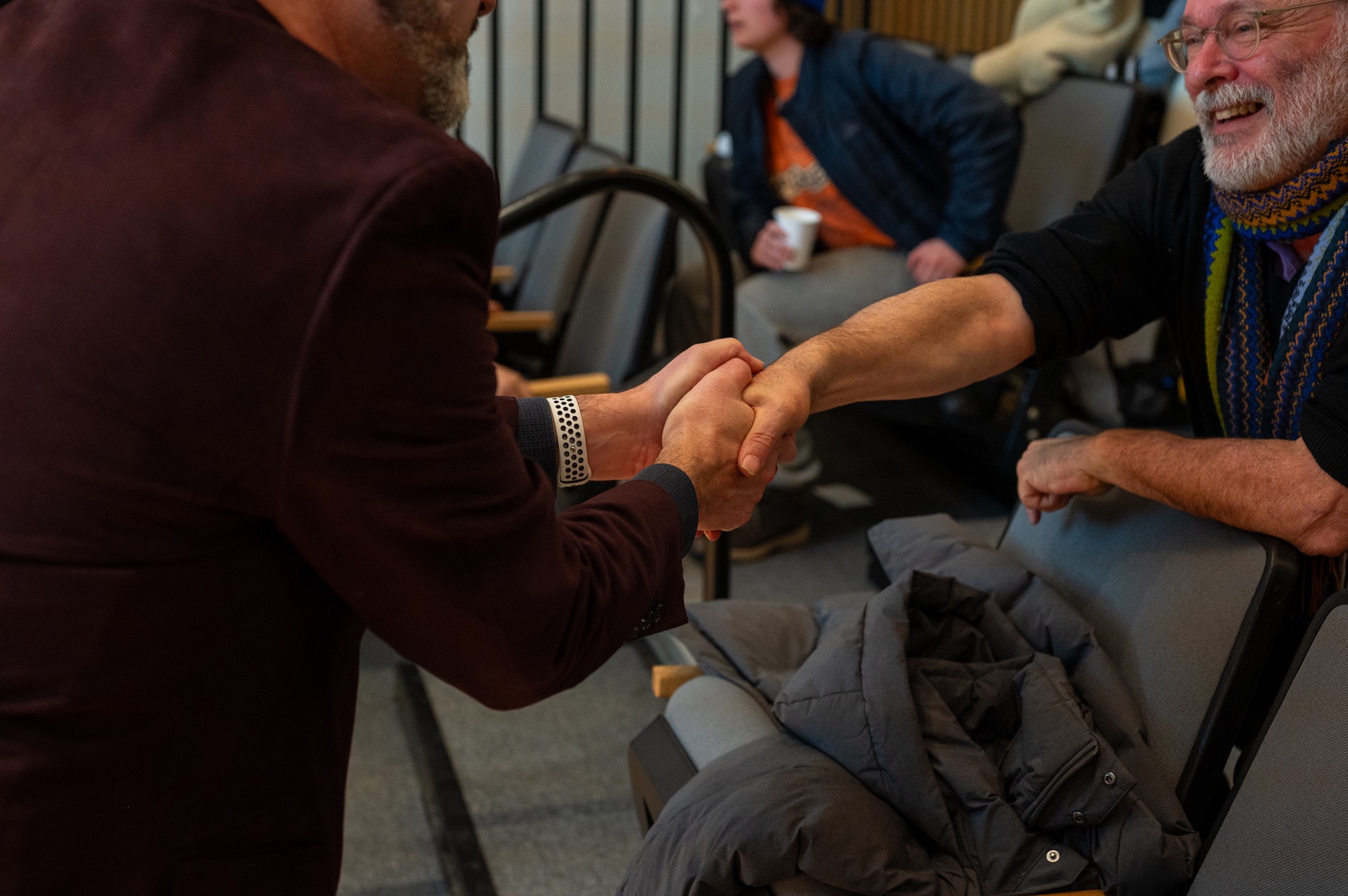
He concluded that the role of journalists is “not necessarily here to solve the problems… but to help inform people on the decisions that they need to make.”
For Newhouse students and the broader community, the event served as a reminder of the profound impact journalism can have on our understanding of world events. This panel not only examined the challenges and nuances of covering the Israel-Hamas war but also highlighted the critical need for a balanced, thorough and empathetic approach in journalism, emphasized by Rubin.
“I think the most important question to ask when thinking about bias, is thinking about the stories not being told,” she said.
Allen Huang is a graduate student in the media studies program at the Newhouse School.